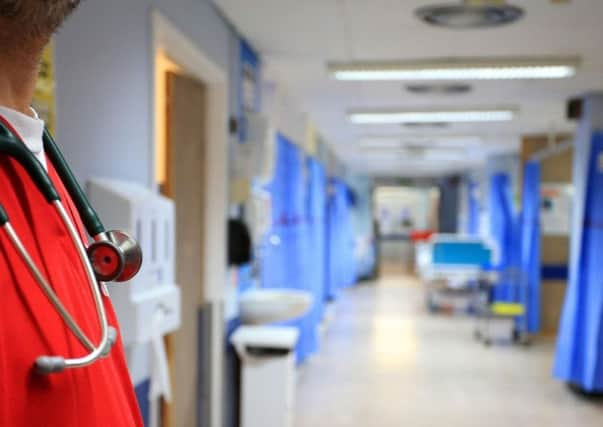Target for cancer waiting times was missed in Northumberland last year


During 2017, 1,012 total cancer patients were referred to hospital urgently by their doctors, but 161 did not start their treatment within 62 days, according to NHS figures.
The government has a target of 85% of all referrals to have treatment start within two months.
Advertisement
Hide AdAdvertisement
Hide AdThis is to allow for the minority of patients who choose to delay their course of treatment, which may be chemotherapy, surgery or radiation therapy.
In Northumberland CCG, 84.1% of patients began treatment within two months of an urgent GP referral, slightly below the NHS target.
That is lower than 2016, when 86.2% of patients started treatment two months after referral, which is above the NHS target.
The best record is in South Cheshire CCG where 93% of cancer patients started treatment within two months. But in Thurrock CCG, Essex, it was just 59%.
Advertisement
Hide AdAdvertisement
Hide AdNorthumberland CCG offered slightly different figures, but with the same outcome. A spokesman said: “During 2016/17, the CCG performance against the referral-to-treatment 62-day cancer target of 85% was 86.5%, with 843 out of 975 patients completing treatment within 62 days.
“In the previous year, 2015/16, it was 89.6%, represented by 849 out of 948 patients being treated within 62 days.
“However, during 2017/18, the CCG performance was 83.9% against a target of 85%, which equates to 868 out of 1,035 patients being treated within 62 days.
“We are constantly focused on improving cancer diagnosis and care for patients in Northumberland and the month-on-month performance continues to improve through close collaboration with our local providers Northumbria Healthcare NHS Foundation Trust and Newcastle Upon Tyne Hospitals NHS Foundation Trust.”
Advertisement
Hide AdAdvertisement
Hide AdDr Jeanette Dickson, vice-president of clinical oncology at the Royal College of Radiologists, said that while the figures ‘are a cause for concern’ they are a slightly crude measure for judging cancer diagnosis.
“In an ideal world, we would want it to be 100%,” Dr Dickson said. However, she explained getting from the GP to treatment is a complicated process, requiring many different appointments and staff.
“There is currently a shortage of radiologists (doctors who give X-rays), and to a lesser extent oncologists (doctors specialising in cancer).”
An NHS England spokesman said: “Cancer survival is now at its highest ever and over the past year, the NHS treated more patients within the fast-track waiting target than the year before.”
Advertisement
Hide AdAdvertisement
Hide AdDr Dickson said the time periods required for treating different forms of cancer are vastly different.
“With your average male prostate cancer patient, you will do nothing but examine and watch for 10 years.
“However, with tongue cancer or aggressive lung cancer you need to start treatment within three weeks otherwise it’s likely the patient will have less chance surviving.”
Across England, the percentage of patients starting treatment within two months has dropped from 87.1% in 2012-2013, to 82.1% in the first three-quarters of the current financial year.
The operational target hasn’t been hit since 2013.
Advertisement
Hide AdAdvertisement
Hide AdSara Bainbridge, from Cancer Research UK, said: “We know that local hospitals are making every effort to meet this target, and other cancer waiting times improved from January to February.
“Part of the reason why hospitals are struggling to meet the target is because NHS diagnostic services are short staffed.
“We need the government to make sure there are more staff to deliver the tests and treatment that people need on time.”